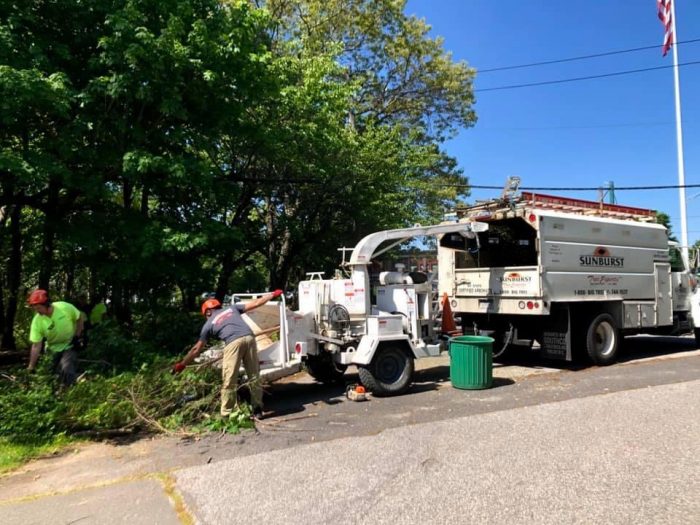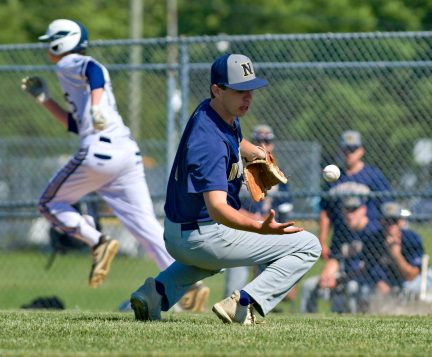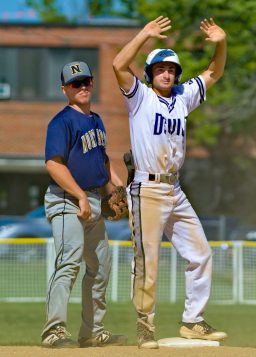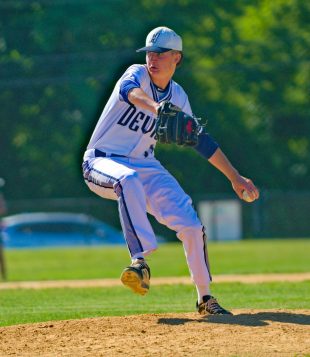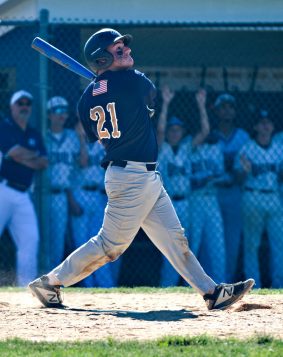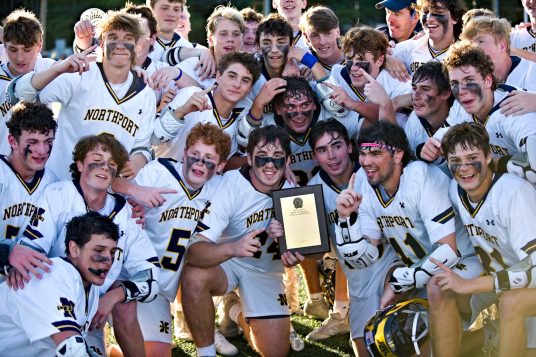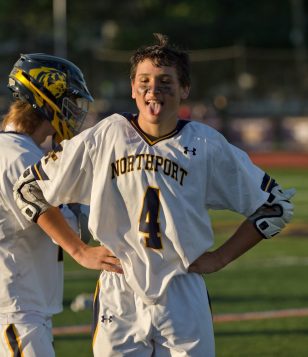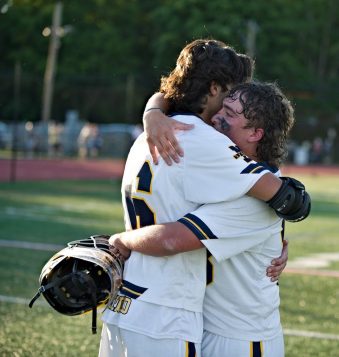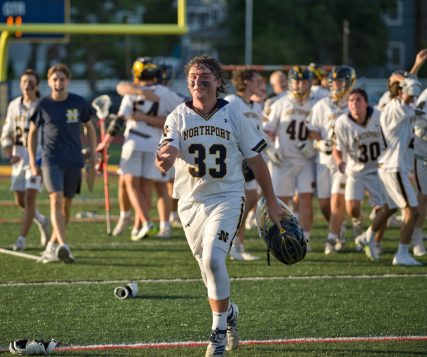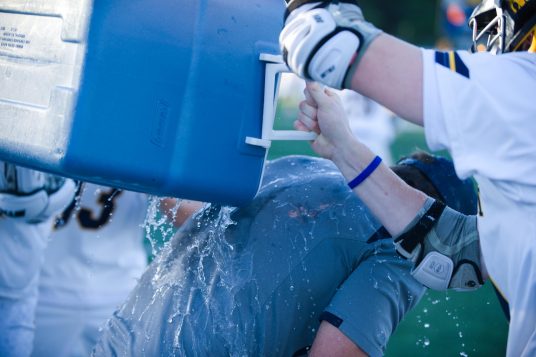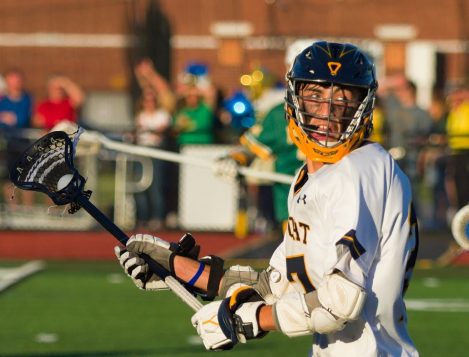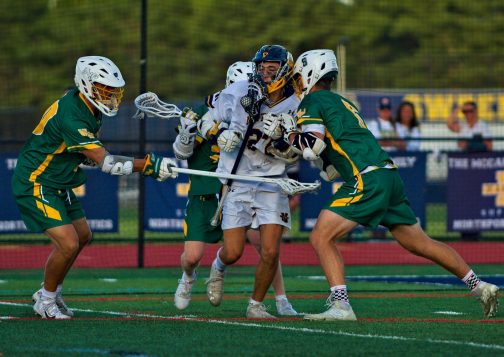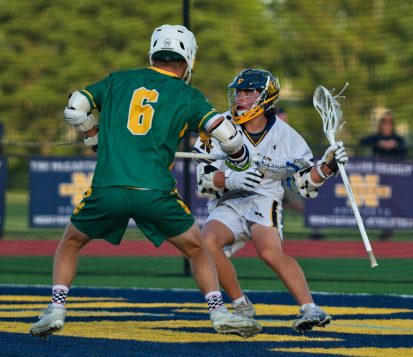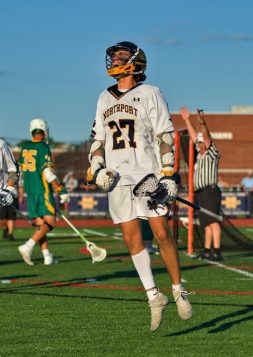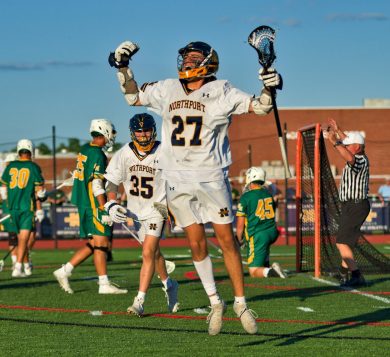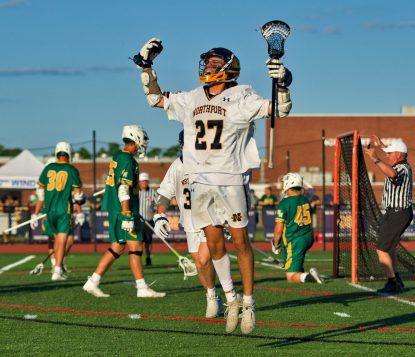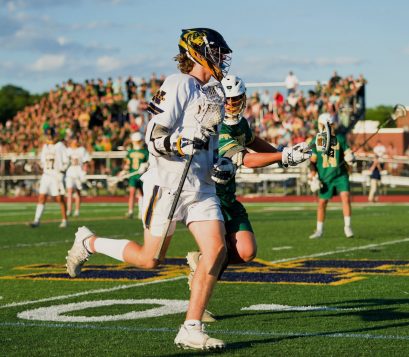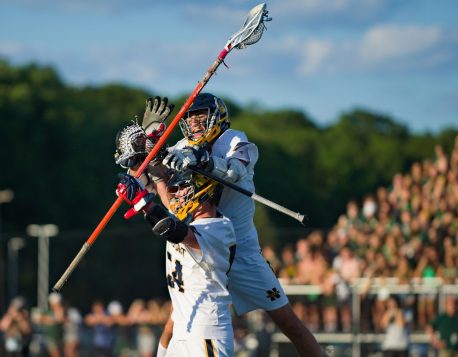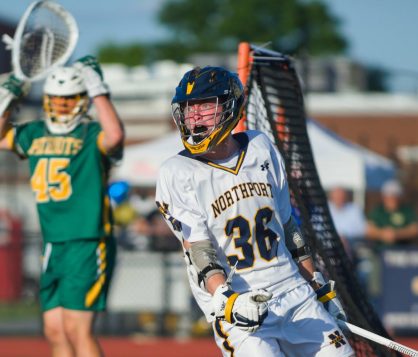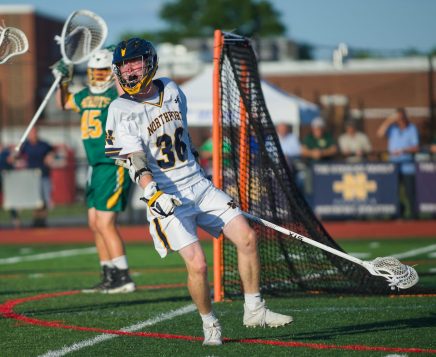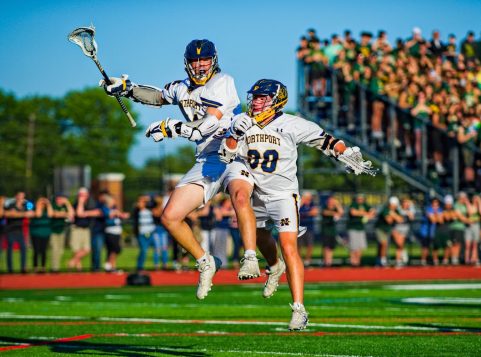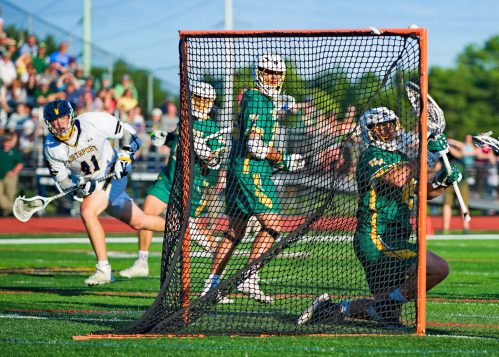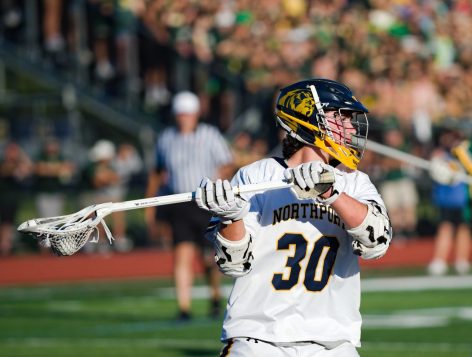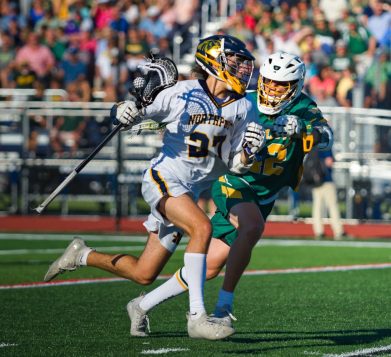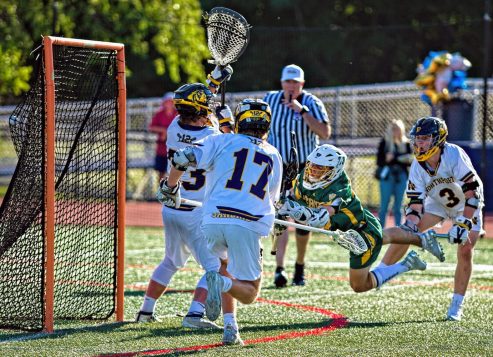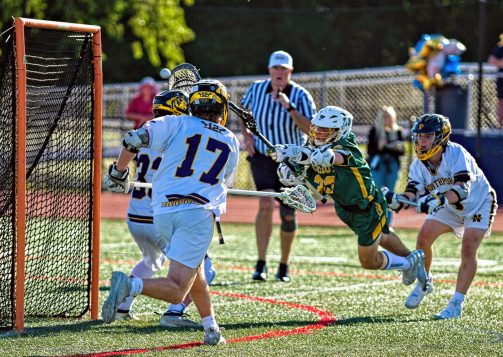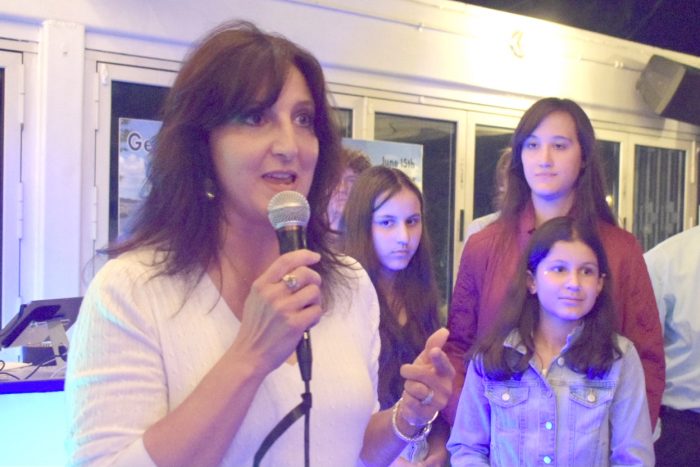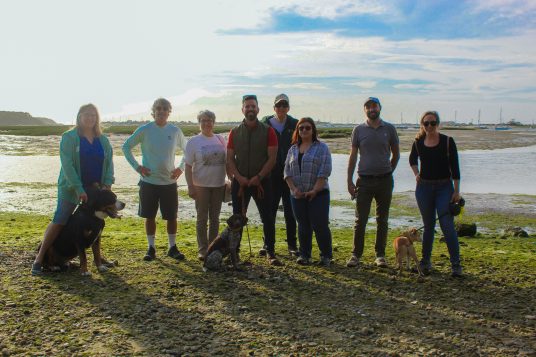By Steven Zaitz
Mount Sinai senior pitcher Dan Kellachan has a long memory.
When head baseball coach Eric Reichenbach handed Kellachan the ball to pitch against archrival Shoreham Wading River for the Conference V title, the fireballing righty had a single thought — revenge.
Back on May 14, the 6’1”, 200-pounder was uncharacteristically shelled by SWR for four runs in four innings, including two home runs, in his only loss of the season.
“Since then, that game has been the only thing on my mind, and I wouldn’t have wanted to face any other team to win the championship,” Kellachan said. “I knew I could have done better against them last time. I was happy I got the chance to prove myself.”
He did exactly that, as the Mustangs defeated the Wildcats 4-1 on Friday afternoon and advanced to the Long Island Championship game against Nassau County’s Island Trees. Kellachan, mixing a fastball in the low 90s with a knuckle curve, struck out four in 5 2/3 innings, escaped some serious basepath traffic, and got big-time help from his defense and bullpen.
“With a championship on the line, there is nobody else I’d rather have out on that mound than Dan,” Reichenbach said. “His outing against these guys in May did not worry me at all. Dan has the mental make-up just for this type of situation — and he proved it tonight.”
From very early on, Kellachan would call upon that mental make-up, as the Wildcats were prowling around the bases and looking to strike.
“I got out of a couple of tough spots there and I had a lot of help from my defense,” the Ithaca-bound senior said.
In the 2nd inning, the Wildcats put runners on second and third to start the frame. Kellachan struck out Jacob Bacenet and Joey Marchese and then got Kyle Engmann to ground out to end the threat. Kellachan pumped his fist with delight on his way back to the dugout. It would be one of many fist pumps on the afternoon.
In the 5th, Mustang center fielder Joe Valenti made a fine shoestring grab and right fielder JT Caruso made a diving catch to end the inning with the bases loaded. In the 6th, with Mount Sinai nursing a three run lead, Matt Fauvell, who replaced Caruso in right, made a twisting catch of a wind-blown ball with two outs and the bases again loaded.
If that ball gets past Fauvell, the game would have likely been tied.
“We’ve been playing great defense all year,” Reichenbach said. “Our offense has come and gone at times during the season, but we’re all about pitching and defense, and those two parts of our team showed up today.”
SWR starting pitcher Billy Steele wasn’t as fortunate. Two errors in the third inning led to three unearned runs for the Mustangs and first basemen Matt Galli, who would relieve Kellachan and finish the game, knocked in L.J. Bohne and Matthew Carrera with a single to center. Mount Sinai would eventually take a 4-1 lead into the seventh.
Galli pitched 1 1/3 innings for the save, giving up two walks and a hit. Despite the baserunners, not to mention his unorthodox style of having his baseball cap fly off his head after every pitch, he negotiated the final four outs, fittingly sent Kellachan off to college as a winning pitcher — and his team to a championship.
Upon the final putout, there was a sea of white and red bedlam in the middle of the diamond — with Kellachan on the bottom of the pile.
“There’s no better way to go out,” said Kellachan, who acknowledged the adoring home crowd with a tip of the cap when he was relieved in the sixth. “We have such a great team and we’ve had such a great season. I’m glad I could get this win. Now, we have one more win to get.”
The Mustangs would indeed get that win, beating Island Trees to win the Conference V Long Island Championship on Father’s Day.
They blew a three-run lead in the fifth inning as the Bulldogs tied the score at 5. But an RBI double by catcher Derek Mennechino gave Mount Sinai a 6-5 lead. He would score on a sacrifice fly later in the inning, but only after the umpires discussed the tag up rule for nearly 30 minutes. They would allow Mennechino’s run to stand.
The final score was 8-6 and it gave Mount Sinai its first-ever Long Island baseball title. They finished the year with 19-2 record, which is the best in school history. Relief pitcher Chris Batuyious pitch the final three innings and was credited with the win.

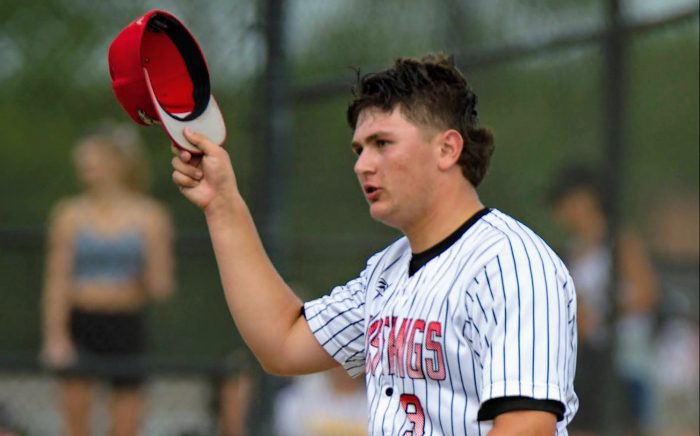

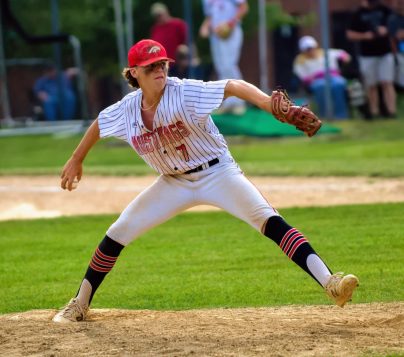
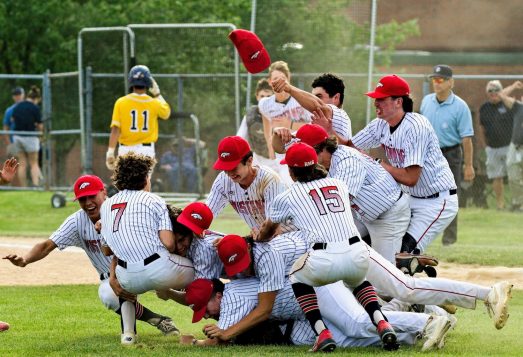
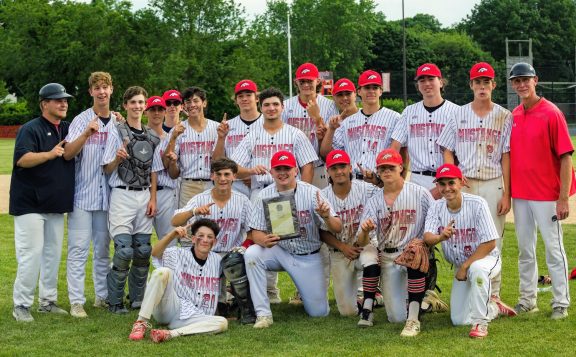
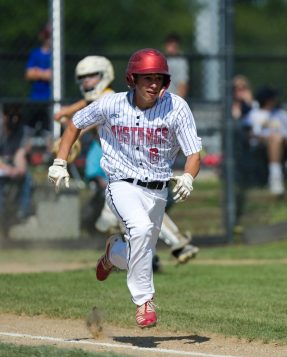
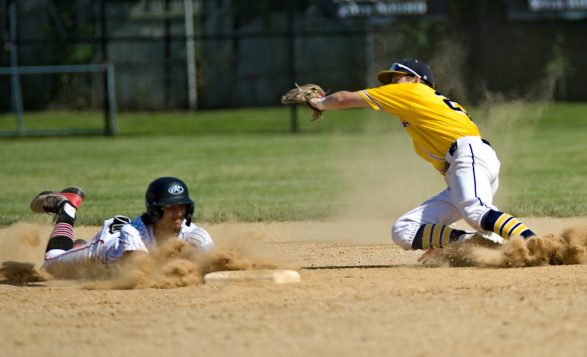

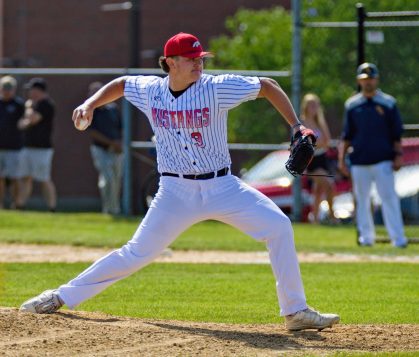



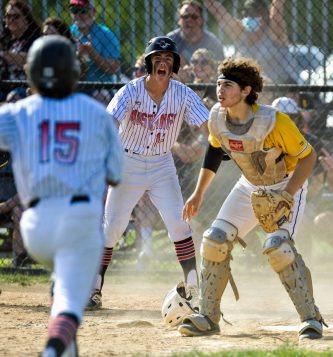
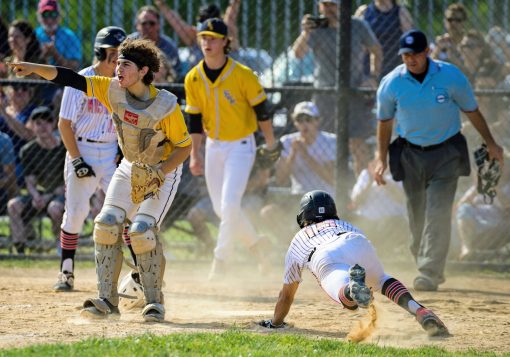
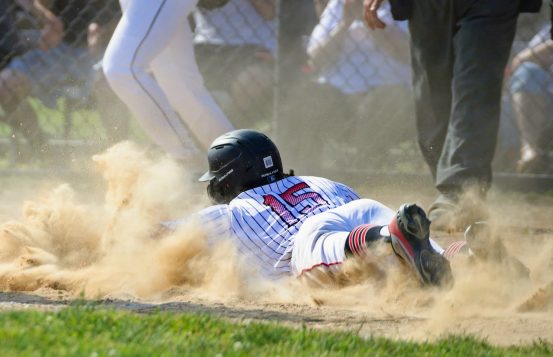

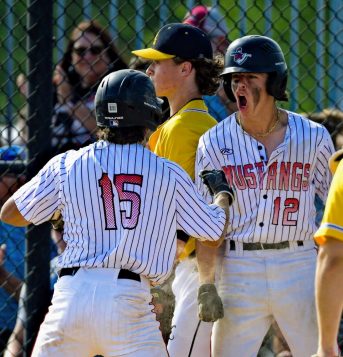

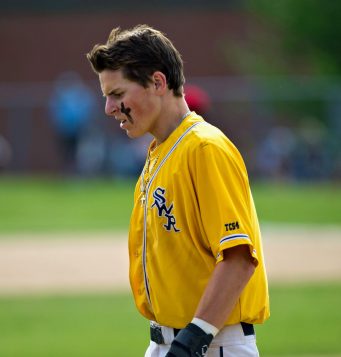
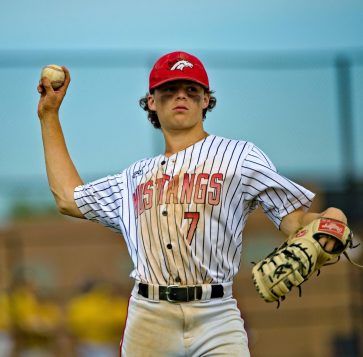
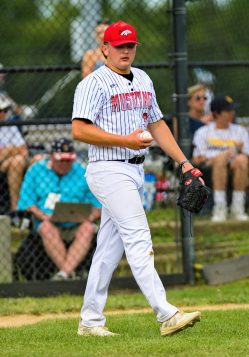
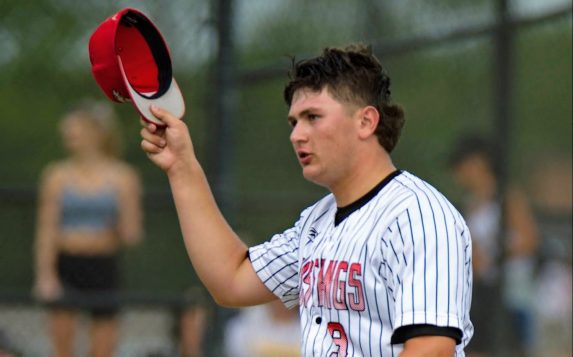
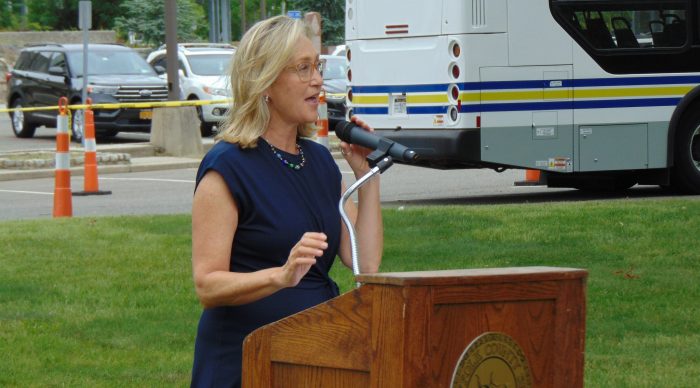

 Host a beer tasting
Host a beer tasting 